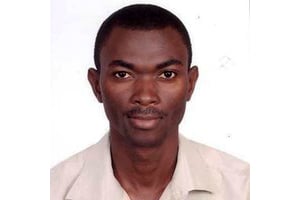Prime
Embrace and improve rankings, academic tells local universities

Students sit for a law pre-entry exam at Makerere University. As recently as 2020, universities in the region eagerly awaited the publication of rankings. Photo/File
What you need to know:
- The ideals of university rankings took roots in the 1970s and 1980s, with social scientists becoming increasingly more interested in the methods and merits of ranking higher education institutions. This was accompanied by a growing recognition, already in the 1970s, that rankings had a place and purpose in the higher education system—a trend that has continued into the present day.
There have been growing calls by academics that universities move away from rankings, but, presenting a paper at the Critical Universities Conference in Ghana last week, Dr Jude Ssempebwa argued that there is a lot more for higher education to gain from the rankings.
Institutions of higher education in the region cannot choose whether to have rankings or not. Instead, the only choice available in this regard is whether the rankings will be good or bad, Dr Ssempebwa, an associate professor at Makerere University, added.
Quoting from Ohio University, US, scholars Luke Myers and Jonathan Robe, the academic says favourable rankings of academic staff have also “improved the career opportunities and mobility of some staff”.
As recently as 2020, universities in the region eagerly awaited the publication of rankings. These were received with immense pride.
“For over 10 years consecutively, we have maintained our spot among the top five universities in Africa,” announced Makerere on September 2, 2020.
Between then and now, it has been three years. Yet it all looks so distant given the growing disengagement from the rankings in recent years.
If it is not Makerere University Vice Chancellor Barnabas Nawangwe suggesting pulling out of the rankings, then it is a professor at Harvard Medical School engaging the reverse gear away from the rankings.
During the conference in the Ghanaian capital Accra last week, Dr Ssempebwa said rankings help drive satisfactoriness of curricula, research programmes, quality assurance practices, academic staff development, enrollments and societal expectations.
“An unflattering (webometrics) ranking of Makerere in the 2000s motivated improvements in the management of the university’s online presence while the maiden appearance of Kampala International University in the Times Higher Education ranking in the 2010s shored up its otherwise wobbling reputation,” Dr Ssempebwa said.
He was presenting a paper titled “Our universities, their priorities? Understanding and challenging the direction rankings are giving to university education in East Africa”.
The October 11 to 13 AcusAfrica conference was also attended by Makerere academic Dr Irene Etomaru, who presented a paper interrogating the influence of global university ranking regimes on the steering of research in African universities. Other Ugandan academics, all from Makerere, were Hillary Tusiime Mukwenda, Robinah Seruga Nakabo, Tom Balojja, and Joseph Kimoga.
Growing strife
The ideals of university rankings took roots in the 1970s and 1980s, with social scientists becoming increasingly more interested in the methods and merits of ranking higher education institutions. This was accompanied by a growing recognition, already in the 1970s, that rankings had a place and purpose in the higher education system—a trend that has continued into the present day.
Rankings in university education are comparisons of universities, departments, study programmes or academic staff with a view to give them positions in series of interest such as research productivity, reputation, funding and student satisfaction.
Unfortunately, Africa is the only geography in the world devoid of either national or regional ranking systems.
Isaac Fokuo and Aparupa Chakravarti, in a joint commentary published by The East African last year titled, “Generate metrics for a ‘successful’ African university”, said in the absence of their own rankings, the only real yardstick is global rankings, in which African universities consistently fare poorly, with the exception of a few.
Makerere started the year with Prof Nawangwe pushing for disengagement from the rankings.
“As top law schools and medical schools withdraw from various university rankings, citing credibility, we are going to review our participation in each of these rankings. We will subsequently decide on whether to continue participating in some or not at all,” Prof Nawangwe posted on X (formerly Twitter).
By press time, Prof Nawangwe had not responded to this paper’s repeated requests to expound on his January comments and whether his gear has not changed over the last nine months.
‘Philosophical concern’
It is, however, understood he was following in the gear-shift executed by Harvard Medical School following their exit from university rankings. Dr George Q Daley, the Harvard Medical School dean, said the recent withdrawal of top law schools from the rankings was one thing but that he also had a “philosophical concern” with rankings.
“Rankings cannot meaningfully reflect the high aspirations for educational excellence, graduate preparedness, and compassionate and equitable patient care that we strive to foster in our medical education programmes,” Daley said in his communication to the top medical school on January 17.
The subject is not one many academics are ready to throw their mortar band in. Prof Charles Oweyegha Afunaduula, a retired senior lecturer, said the rankings do not matter.
“They do not even tell the truth. I have been saying higher education globally must be overhauled,” he said.

Dr Jude Ssempebwa, an associate professor at Makerere University. Photo/Courtesy
The scepticism about the rankings is summed up by Dr Ssempebwa himself, who said in his paper that the priorities they are producing for universities and their academic staff are alien, even neocolonialist, and ill-aligned with the priorities in the region’s development strategy.
He noted: “Skepticism has been expressed that obsession with the rankings is egocentric, and hurting quality at individual, institutional and systemic levels.”
So, are rankings a neocolonial structure pressurising universities and academics in East Africa to pursue priorities that are irrelevant to their deserving service mandate?
It is a question that Dr Ssempebwa premised his discourse on, choosing to show that rankings are neither against universities here nor without benefits. Despite their shortfalls, “rankings have enormous power” and are directing the development of university education worldwide.
“Universities must take cognisance of the fact that organisations ranking universities have shown commitment to improving the relevance, fairness and accuracy of their methodologies,” he said, adding, “The fact that these organisations have not only diversified and refined their approaches over the years but also invited suggestions towards their improvement means we are invited to do more than denigrate the rankings.”
Frustration with rankings
Starting with Makerere 100 years ago, East Africa has hundreds of universities, many of which subscribe to different rankings that provide lists of the best universities, departments, study programmes and academic staff.
The main rankings include: Webometrics Ranking of World Universities, Quacquarelli Symonds Top Universities (QS), Academic Ranking of World Universities (ARWU), and the Times Higher Education Ranking (THE).
Other rankings include: UniRank, EduRank, Scimago Institutions Rankings, US News and World Report-Global Ranking, U-Multirank (UMR), Clarivate Analytics Innovative University Ranking (formerly Thomson Reuters), University Ranking by Academic Performance (URAP), and Leiden Ranking.
Others like H-Index and AD Scientific Index rank academic staff.
Ranking organisations primarily collect and analyse comparative data on proxies of universities’ and academic staff research productivity, reputation and other attributes of quality assurance such as study programmes.
To try and do well in the rankings and attract students, funding, or even prestige, many universities in East Africa are focusing on incentivising publishing, particularly in journals that ranking organisations consider in their algorithms.
At Makerere University, for example, a research and innovations policy requiring doctoral students to publish at least one journal article to qualify for graduation and lecturers to publish at least one journal article annually was adopted in 2008. In 2009, Makerere also pushed for expedited promotion for prolific authors.
“These were both adopted with the view to increase the number of publications. And to keep pace with the flagship university, other varsities in Uganda, and the region, soon adopted similar policies,” he said.
The paper also suggests that with rankings such as the Impact Rankings focusing on the UN Sustainable Development Goals, to which all the countries in East Africa are signatory, their relevance cannot be clearer.
Scholarly articles show that the Times Higher Education sub-Saharan Africa University Rankings were developed specifically to address the challenges faced by higher education institutions in sub-Saharan Africa.
The methodology for the rankings was developed through extensive engagement with university leaders across the region.
Other scholars such as JC Aggarwal in “Theory and Principles of Education: Philosophical and Sociological Bases of Education”, aver that if not for their benefits and validity, for the truism that “education is a mirror of society and the educational institution is society in miniature,” rankings must be sustained.
“Society likes the rankings,” Ssempebwa adds.
Ssempebwa, however, also says universities do not have to embrace the direction into which rankings are derailing them. He urges paying attention to criticism and periodically revising the more useful classifications adapted to the reality of universities and their missions.
| Top five universities in Uganda (Webometrics) | ||||
| University | World Rank | Impact Rank | Openness Rank | Excellence Rank |
| Makerere | 1,086 | 1,670 | 1,251 | 1,200 |
| KIU | 2,179 | 1,339 | 1,838 | 3,807 |
| MUST | 3,085 | 6,237 | 3,309 | 3,096 |
| Kyambogo | 4,180 | 8,646 | 3,961 | 4,229 |
| Gulu | 4,403 | 11,573 | 4,475 | 3,912 |





